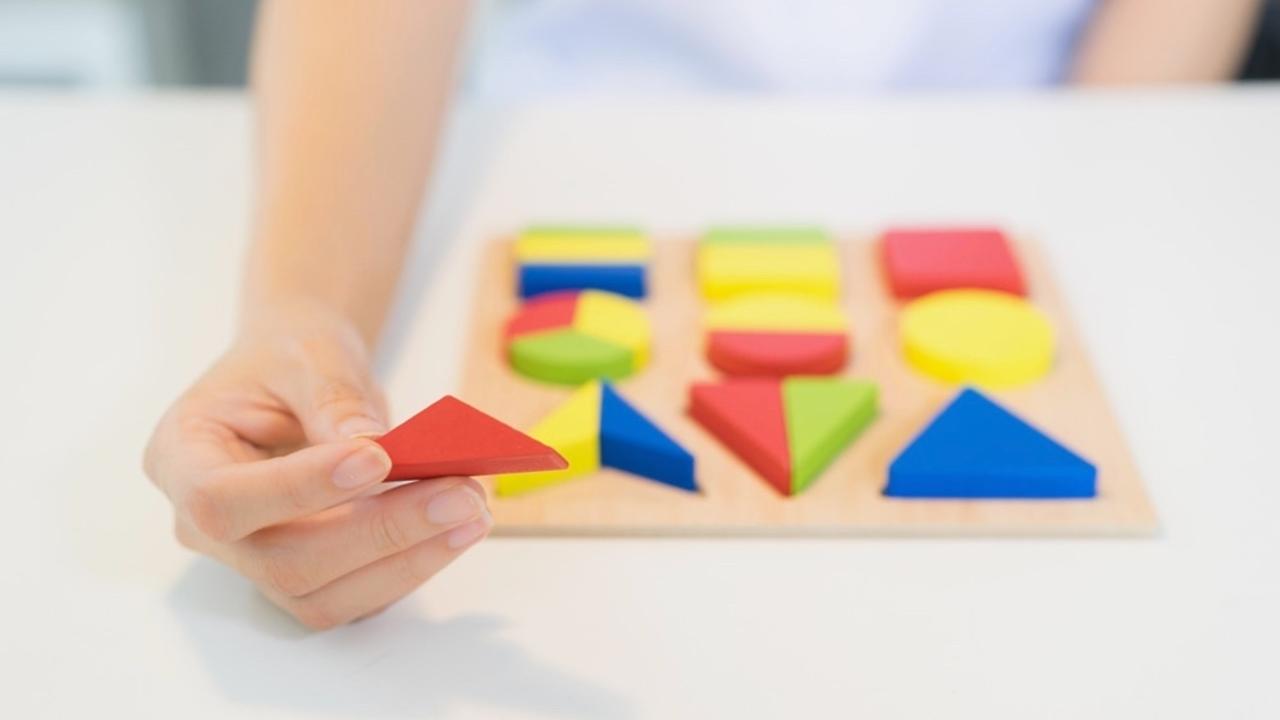Blog
How Therapeutic Fitness Can Help Your Exceptional Child: with Guests Ty & Hilary Krueger of Behavior Change Collective

Helping others improve their quality of life and discover the best version of themselves is what I (Ty) live for. I'm not 100% sure when this passion started for me, but my mom often tells a story of me as a first grader that may explain it…
Growing up, my mom was a special education teacher in the Milwaukee Public School District, so it made the most sense for me to attend the school that she worked at. For those of you not familiar with Milwaukee, the majority of the public schools in the district were pretty rough and the kids, even rougher. As a 7-year-old though, I didn't think anything of it and I was stoked to make some new friends at my new school. Being the social and friendly little dude that I was, I quickly made friends with the coolest kids in the class. At first quarter conferences, my teacher breezed through my academic progress stating how proud she was of the progress I was making in reading and math and then came a “BUT”. She went on to express her concern with the "...
Which Specialists Diagnose and Treat ADHD?

Your child is having difficulty focusing and seems constantly distracted by the smallest things. Homework and morning routines take hours to complete. Your child is rarely able to stay seated at dinner or at a desk, interrupts constantly, blurts out funny comments at the most inconvenient times, and climbs literally everything in sight. After years of concerns from yourself and teachers, you finally make the decision to seek out an evaluation and treatment for attention-deficit/hyperactivity disorder (ADHD). However, after a quick google search in your area for specialists who diagnose and treat ADHD, it becomes clear that there are too many options. Hello, overwhelm and confusion! In this blog post, I am going to provide you with a little information on ADHD, why a comprehensive evaluation is important, and advantages/drawbacks of various specialists who diagnose and treat ADHD.
What is ADHD?
Before I get into answering the question of which specialist to choose, let’s first disc...
What Executive Functioning Skills Can You Expect From Your Child?

Over the past few months, we have been sharing about executive functions: what they are, why they are so important, and how we as parents can support children with ADHD, autism, learning disorders, and language challenges with these skills. One question we consistently hear from parents is, “How do I know what skills are appropriate for my child at a certain age?” This is a great question! Many times, parents fall to one end of the spectrum; either they expect too much from their child, or they assume that their child cannot do tasks independently, and end up “over-helping,” which can accidentally make children more dependent on their parents (oops, I know that is NOT your goal!).
To help you understand where your child should be in their development, we have put together some information about what you can expect at various ages. Before we start, it is SO important to understand that every child is different! Executive function skills develop differently in everyone, so keep in mind ...
4 Strategies to Teach Growth Mindset to Your Child with ADHD or a Learning Disorder (or Any Child!)

When I was still in practice as a child psychologist, it was a disheartening reality that, by the time most children were walking through my door for a diagnostic evaluation, their struggles were longstanding. Often, it had gotten to the point of failing grades (or having to repeat a grade!), ineffective school interventions, or a tumultuous home situation with parents at their wits’ end (we have more free resources if school or homework is a struggle). In any of these situations, as you can imagine, the child themselves is just as frustrated as the adults who are trying to help them.
During diagnostic testing, there is a lot of one-on-one time with the child, engaging them in conversation and tasks. These tasks, by design, push children to their limits. It is in these moments that I really got a glimpse into their (usually) internal dialogue... and it was, more often than not, not very kind.
“I’m stupid.”
“I’m not good at math so I can’t do this problem.”
“This is too hard.”
“I’l...
What Are The Executive Functions... And Why Do They Matter?

Is it a struggle to get your children ready for school every day? Do you feel like a broken record as you repeat the same instruction approximately 328 times each morning, only to eventually yell at your child just to get their attention, and then have them look at you in surprise that you are so annoyed? Does a change in the routine cause a lot of stress for your kids? Do you notice your child’s emotions going from “zero to sixty” after a change in plans or minor disagreement? As we get closer to the end of another semester and the holiday season is in full swing, all of us are probably struggling with task persistence and managing our time. We are here to provide you with more information about executive function for your child with ADHD, autism, language disorder, or learning challenges to help make the days run a little bit smoother!
A few weeks ago, we talked about five important facts every parent needs to understand about executive function.Today, I’m diving deeper into one...
10 Do’s and Don’ts for Using Rewards to Improve Your Child’s Challenging Behaviors

If I had a nickel for every time parents told me that they had already (without much lasting impact!) tried a reward system at home with their child—well, I would be a rich woman. Many of you who have a child with ADHD, an autism spectrum disorder, or executive functioning challenges have struggled with your child not listening or following directions at home, having frequent meltdowns, hitting peers or siblings, using disrespectful language, etc. So, you probably decided to try a rewards system to work on these skills. And--let me guess--your child’s behavior improved initially, but then a week later you were right back where you started.
Believe me, I know. I have been there, too, with my own kids. We start a cotton ball jar for following directions and showing kindness. A week into it, my kids are sharing well and following their morning and nighttime routines with ease. Another week later and I’m forgetting to give the cotton balls, my kids are taking 30 minutes to get dressed ...
Executive Functioning In Children: 5 Things All Parents Need To Know

How’s your week going? Let me guess...
You have everything running perfectly on schedule, right? You’ve gotten all the house projects done, laundry put away, finished everything at the office at least 48 hours before it was due, and baked three dozen sparkly cupcakes for the bake sale... AND your children got along without fighting, listened every time you asked them to do something, and sat quietly (without prompting) when you had to answer the phone. Whew, a truly perfect day. Or was it a little more complicated than that?
Regardless of what you accomplished today, let me reassure you that this parenting thing is a lot of work… for all of us! And when you really think about it, it’s amazing that as parents, we are able to balance so many different roles at one time. Seriously, how do we do it? Whether you realize it or not, you constantly use executive functions to help you get through your to-do list every day. This unique set of cognitive skills helps us every time we set a goal,...
7 Ways to Support Your Child if the Transition to School Has Been Challenging

We are getting into that time of the year when our office is flooded with calls from parents who are deeply concerned that their child’s transition to school has started off, frankly, not so hot!
On a personal note, my daughter just began kindergarten and we are in a similar boat. A month into the school year, I found out that she was far below expected levels in pre-literacy skills. Whoa… not what I expected to hear.
After receiving the letter, I had many thoughts. I felt like I had completely fallen short as a parent and a professional. How did I not know that? Being the testing psychologist that I am, I of course gave my daughter an informal comprehensive evaluation prior to kindergarten to ensure she was on track. She was going to be a young kindergartener, and we received mixed messages about sending her early. I have never been a parent who was overly concerned about my daughter’s learning. She seemed to learn letters easily, and my goal for preschool was more for social ...


